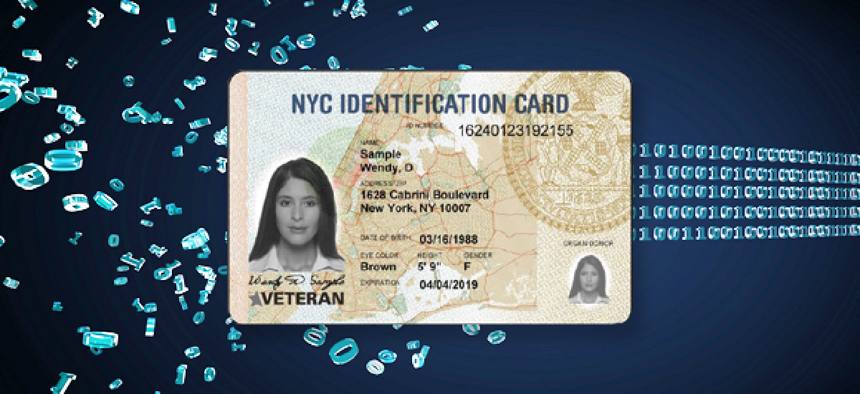Deletion before disclosure: How NYC can protect municipal ID cardholders’ privacy

To protect the privacy of undocumented New York residents, the mayor said the city could wipe its database of municipal identify cardholders before 2017.
Amid speculation that the incoming Trump administration may compile registries of undocumented immigrants, New York City’s mayor has vowed to protect the privacy of city residents who have applied for the city’s municipal identity card.
IDNYC was introduced in 2015 as a form of primary, photo identification for those without official ID or driver’s licenses, including the elderly, homeless, formerly incarcerated individuals and others who have difficulty obtaining a government-issued ID -- regardless of their citizenship status. The program’s database holds the personal information of more than 850,000 cardholders, and a high number of those individuals are immigrants, both documented and undocumented.
According to the Mayor’s Office of Immigrant Affairs, the city protects IDNYC cardholder information, which residents provide when they apply for the program. The city is committed to protecting this information, but President-elect Donald Trump’s statements about an undocumented immigrant deportation plan have raised concerns.
Though Trump has not yet officially shown interest in the city’s database, CNN reported that NYC Mayor Bill de Blasio discussed the possibility of wiping the database to prevent the next administration from accessing it.
"So on something like [the database], I think because it touches that button directly of whether people's personal privacy is going to be respected, I think that's one where there would be a real fight," de Blasio said in the press conference.
Applicants over the age of 14 provide information like addresses and birth dates, but are not required to disclose their immigration status. Currently, the data is secured and stored on encrypted databases and servers with strict security protocols.
The city shares IDNYC personal information for two reasons only: when authorized by the cardholder to determine eligibility for other city agency programs or in response to requests by law enforcement or other government entities. According to the executive order governing third-party data requests, cardholder information can’t be given to authorities either unless the city’s Human Resources Administration permits it. “Disclosures of such information to third parties are expressly prohibited unless approved in writing by the HRA General Counsel and the Commissioner or their designees,” the order states.
When the program was first announced, application materials were to be deleted no later than two years after submission. Under the law, the city also has until the end of 2016 to make any changes to its IDNYC policy for retaining personal information and records. This includes completely wiping the database, which is what the mayor said he is considering.
Similar concerns over the privacy and security of the data were raised in 2014 by the New York Civil Liberties Union. NYCLU officials worried the program would put vulnerable New Yorkers at risk, rather than benefit them, by releasing their private information without proper warrants. “If undocumented New Yorkers are going to hand over sensitive documents…the city must take every step to assure that law enforcement and immigration authorities do not have open access to that information," NYCLU Executive Director Donna Lieberman said.
The Mayor’s Office of Immigrant Affairs reiterated its obligation to preserving the confidentiality of cardholders’ information while maintaining the integrity of the IDNYC program. The office would not comment, however, on questions regarding possible future federal attempts to access the data.
NEXT STORY: 4 ways to avoid data risk from printing





